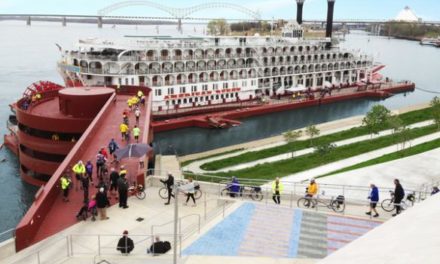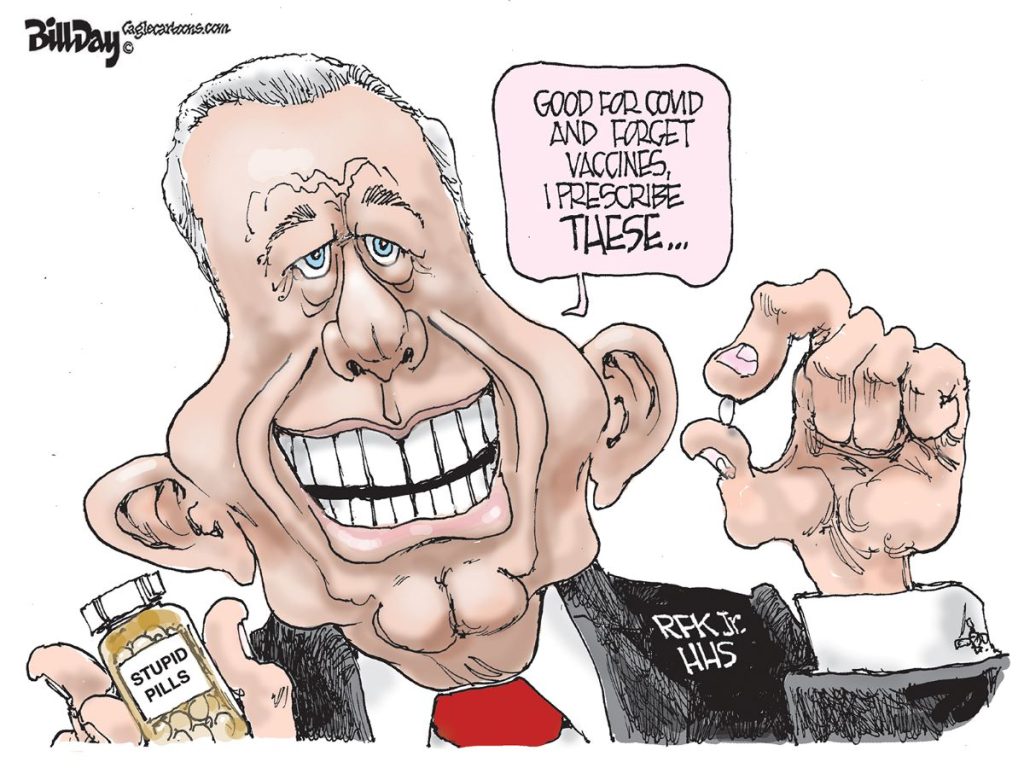The following post was written by a favorite Memphis economist of ours, David Ciscel, former Chair of the Economics Department, Associate Dean of Fogelman School of Business, Dean of the Graduate School; Dean of the School of Business at Christian Brothers University; and Senior Consultant for the Federal Reserve Bank of St. Louis. He has published more than 200 academic articles and monographs ranging from executive compensation level, value of household labor, regional economic development, and urban sprawl.
His perceptive, scholarly analyses of the Memphis economy are required reading for anyone looking to understand the history of the Memphis economy and gain insight into its current lethargy when compared to cities it previously outperformed.
By David Ciscel
A recent blog by Paul Krugman (12/30/2017) got me thinking about Memphis in a slightly different way. The smaller cities and towns in the US have always provided specialty services that the rest of the nation needed, and this has linked them to the major cities. However, Krugman has argued that, geographically speaking, this is less important than in the past. This brief essay thinks about this change as it applies to Memphis.
Historically, Memphis has been a rail and river hub. In the old days, hardwood, cotton and agricultural products were bundled, re-packaged, and shipped through Memphis. Memphis also produced a lot of things in the city for the Southern market from cars and agricultural implements to fans, bubble gum and pianos. Memphis was more important to national economy than places like Nashville and Atlanta.
A lot of that has changed.
In the 1980s, it looked like things would be better than the old days. FedEx was prospering, providing a 21st century version of the old transportation hub. The city was rising above the cultural shame of 1968. The rural areas around Memphis were still an agricultural powerhouse; corn and soybeans now. The remnants of the manufacturing sector seemed to hold on.
But as the new century arrived, Memphis (while prosperous) had seen many business changes. Not only had human-fueled agriculture declined and deindustrialization had hit the area in a major way, locally owned businesses were in decline in retail trade, in finance, and in some aspects of service. Memphis had become more dependent on the business decisions of outsiders. And the specialties of the region no longer strongly differentiated it from other mid-sized cities.
Had Memphis gambled wrong as Krugman argues many smaller cities had done?
With FedEx and I40/I55 trucking, Memphis seemed poised to succeed as it had in the past. We knew we needed to be a specialty city – providing services and products to the global mega-cities.
But we goofed. Most specifically, we maintained the labor force of the past.
The city had always prospered on a hardworking unskilled and semi-skilled work force. That work force was segmented by race. African-Americans provided a large unskilled labor pool that worked anywhere, anytime – agricultural or industrial. White workers, though poorly educated, provided the industrial proletariat of the Mid-South economy.
By the end of the 1980s, this kind of labor force was no longer a road to prosperity.
Unskilled now meant a job in the newly growing custodial or private security business. Semi-skilled now meant a technical degree from a community college, working in medicine, retail or information services. But the city was still paralyzed by racial hostilities that partially crippled the education system, sending black children into the public schools and white children into private schools where forward-looking skills were often not a priority. The local Universities and Colleges did not expand sufficiently to turn the labor force around – or they produced educated adults who found career opportunities out of Memphis.
Memphis entered the 21st century with a logistics specialty that was not sufficient to bring growth or prosperity to the region. Air, rail and trucking just rolled through Memphis. These industries did not build a new economy that the rest of nation needed.
That is, we did not carve out a new specialty, or a unique labor force. And the Great Recession just brought our lack of uniqueness to the forefront. Rather than needing us, the rest of the U.S. economy exploits us. We beg for industry, giving away our fortunes into something called PILOTS, rather that using local monies to make ourselves great again.
Is this our fate forever?
There is no permanent determinism in the economic sphere of human life. Memphis still has a unique cultural landscape and it is an easy place to live – compared to other cities in the region. But Krugman’s insight into the geographic relevance of mid-sized cities should be a warning about the future of the Memphis economy.





Memphis dozed and still does.
We have a leadership vacuum.
Wow. Not the brightest outlook for our city to begin a new year.
Memphis made a number of wrong decisions decades ago and has not recovered. The city especially and the region have a very weak economy, weak workforce and even weaker leadership at all levels.
The steady decline of Memphis will continue to get worse.
From what I have seen, Memphis is moving in the right direction. Major Strickland does the right things. But it will be difficult for a long time since Memphis has to overcome his past.
Since the West Coast is gotten so ridiculous expensive even for people with well paying high tech jobs there must be a way to dig into that, in the future.
This year is the 50th anniversary of MLK’s murder here. The city’s problems and lack of progress will be on display for the world to see. In so many ways the city hasn’t changed or progressed much in 50 years and many of the issues are worse. Memphis has a poor image and reputation as well as bad economic problems.
Excellent article David. I appreciate the sober and objective viewpoint that you provide. This is a great article to start off the New Year as we take a hard look at where we want to go as a city.
Despite this “goof” I am still encouraged by the efforts of many individuals in our City to point our future in the right direction. One person in particular is Eric Mathews who founded a start-up nonprofit called Start-Co. Start-Co helps is a business incubator that works with entrepreneurs to launch their ideas into viable businesses. To date Start Co has helped launch over 150 businesses.
markusmemphis: I think you are on to something. I am one of those West Coast transplants. The sticker shock of living back home in the Bay area keeps our family here along with the low cost of living in the heart of the City.
I think the key to attracting more people here is to continue to build on the quality of life here. Start Co may attract people from around the globe to build there business here, but what keeps those small businesses from moving away to cities with a better quality of life and larger pool of talent?
Will public and private schools partner with organizations to best learn how to prepare students to become future employees of start-up businesses that are on the verge of scaling up their operations? Will those businesses be forced to move if they don’t find the necessary talent?
The unskilled labor force is a bet that we’ve recently doubled down on by selecting the scion of Memphis’ premier logistics company as Chairman of Memphis COC, and civically ignoring the impending closing of the Memphis College of Art (talk about a Pottersville future!!!)
The better future of Memphis is beyond capitalism and corporatism, which never did much for most of Memphis anyway. That future is built on 3 pieces: reparations, universal basic income, and love of place.
We have the third and it’s time to begin working for the first two.
Memphis desperately needs to revitalize the downtown. Of the big three employers (FedEx, International Paper and Autozone), only Autozone is located downtown. The riverfront is mostly decrepit and in desperate need of development. The largest buildings downtown are unoccupied and crumbling: they either need to be rebuilt or razed. There have been some promising developments: the Crosstown Concourse and Service Master opening a new building. But it seems as if change is extremely slow and incremental. More needs to be done to lure employers to the city.
Take a look at the inciting post by Paul Krugman, https://www.nytimes.com/2017/12/30/opinion/the-gamblers-ruin-of-small-cities-wonkish.html?smid=tw-share
and the post that incited Krugman
https://www.nytimes.com/2017/12/22/upshot/the-great-disconnect-megacities-go-global-but-lose-local-links.html?_r=0
New year and again NEVER anything positive about Memphis. The polls, surveys and economic statistics are very bad. We never seem to move ahead and can barely keep our heads above water while other cities especially like Nashville are absolutely booming. Why can’t Memphis catch some breaks?
Memphis was and is the urban representation of the Mid-south/Delta region. A historically rural, poor and agricultural area. Thanks to the Memphis entreprenuers of the twentieth century like Kemmons Wilson and Fred Smith, we are not Jackson, Ms.
In many ways we can envy an authentic Deep South capital city like Jackson, MS. It has less poverty and an economy supported by state govt. Kemmons Wilson was of a long gone era and Holiday Inn has mostly vanished. FedEx and the low wage warehouse economy this city bet has done about all it can here. We need to stop living in the past and find new 21st Century leaders and businesses to try and revive this moribund local economy. More than anything we need educated workers, less poverty and less crime. These are the constant curses of Memphis today.
Memphis has become a cauldron of carpetbaggers, scalawags, and pandered minorities. A cesspool of Marxist stench in the nostrils of Tennessee. The constant dehumanization, degradation, and cultural genocide being waged against anything not conforming/capitulating to urban Marxist mores, has ripped the faux veneer of righteousness from your faces to reveal the true hypocrisy of leftist insanity within our State.
You have flipped the “table of brotherhoood” over in blind rage. You have “drank from the bitter cup of militancy”, in utter ignorance. Where once many were allowed to proclaim points of honor in support of shared goals, now a hegemony of favored mock and deride all they refuse to understand. The civil rights movement has succumbed to behaving as hatefully as their former opponents.
Memphis, you have become the practitioner of intolerance and hate. You purposely offend and destroy all you refuse to reconcile. You have violated the trust of your State and daily heap insult toward the majority of Tennesseans. You have squandered 50 years of racial progress and defile the memory of MLK by violating his tenets.
You have proven yourselves an unworthy trustee of any legacy you might claim. Who needs Memphis? I do not, nor does any outside the treacherous blue dots that infect our former peace with presently contrived discord.
Memphis is still a sleepy river town that never fulfilled its potential. Decades of corrupt politicians from Boss Crump to King Willie have taken huge tolls on the city’s fragile psyche. Memphians share a huge inferiority complex propelled by the shame of MLKs murder. The city’s weak economy built on warehouses is stagnant. Way too many Memphians are uneducated, unemployed and always looking for the next government handout. There simply isn’t the desire or will among citizens and leaders to make the city better. It’s a tragedy, but it’s true. Memphis is going nowhere but downward.
enjoying your new Thesaurus you got for Christmas, are ya, angry Tennessean?
I know I’m back in Memphis by that Marxist stench — mmm, mmmm!
Anonymous, you are stretching your constant criticism of Memphis a little saying Jackson is better. Its very easy to be critical, especially when no one knows who you are. Its been vogue to down the city for a decades now. Truth is and always has been that your either part of the solution or your part of the problem.